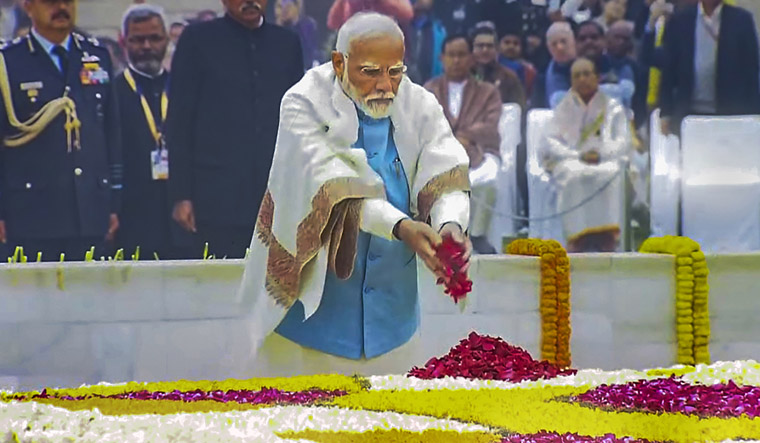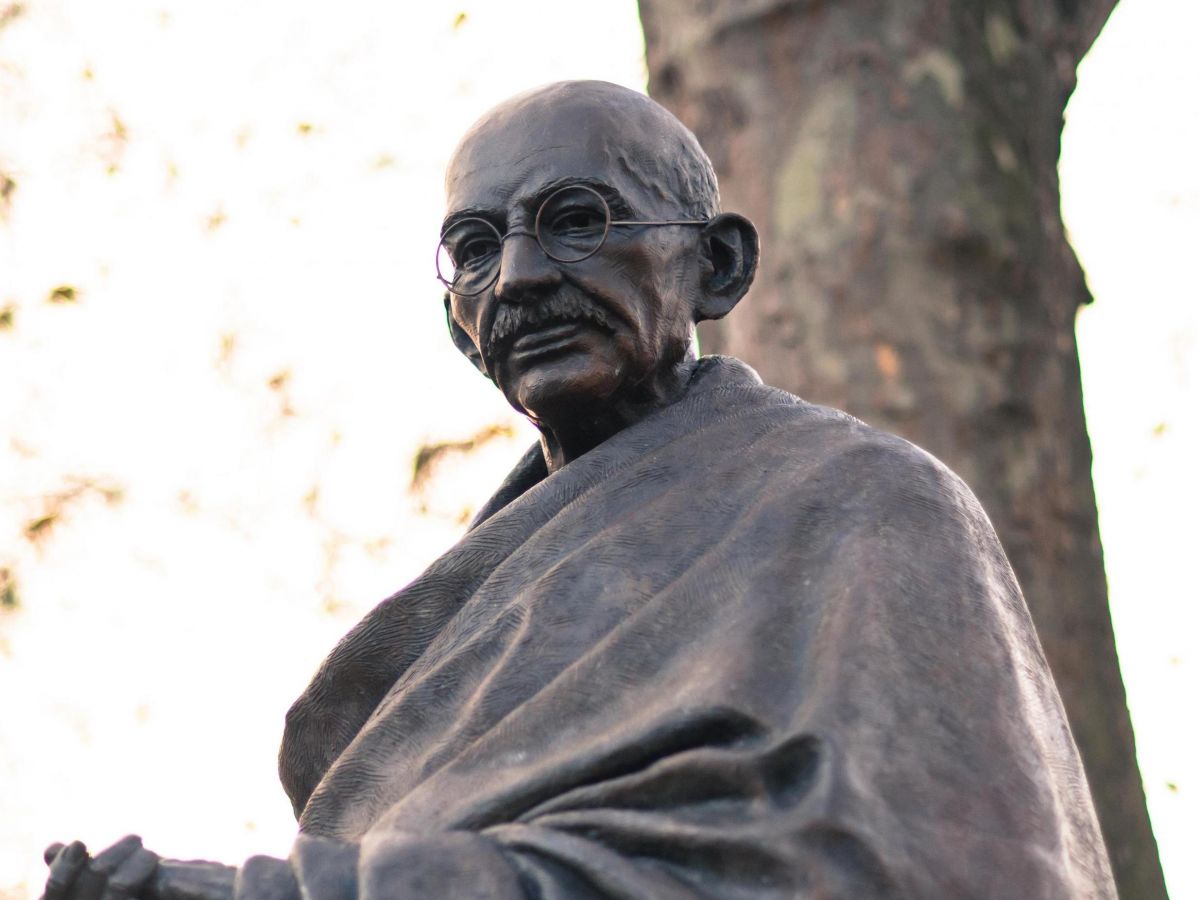Today, January 30, is Mahatma Gandhi’s death anniversary. PM Narendra Modi traveled to Delhi’s Rajghat to honor Bapu this time.
Mahatma Gandhi’s mausoleum is located at Rajghat. At Bapu’s grave, PM Modi placed flowers. The prime minister gave Mahatma Gandhi his due and showered with respect and awe. On his Punya Tithi, he said, “I honor Pujya Bapu.” To everyone who has died as a martyr for our country, I also honor them. Our duty to serve the people and realize their aspirations for our country is motivated by their sacrifices.”
 Also, Prime Minister Modi’s diary entries reveal his dedication to understanding and internalizing Gandhi’s values, highlighting their lasting impact on contemporary leadership and shaping the nation’s course. As the nation remembers Gandhi’s assassination in 1948, Modi’s tribute serves as a poignant reminder of the carrying capacity of Gandhi’s vision of a united and harmonious India. The personal connections revealed in Modi’s diary add a unique dimension to the memories, highlighting Gandhi’s timeless teachings in guiding modern leadership.
Also, Prime Minister Modi’s diary entries reveal his dedication to understanding and internalizing Gandhi’s values, highlighting their lasting impact on contemporary leadership and shaping the nation’s course. As the nation remembers Gandhi’s assassination in 1948, Modi’s tribute serves as a poignant reminder of the carrying capacity of Gandhi’s vision of a united and harmonious India. The personal connections revealed in Modi’s diary add a unique dimension to the memories, highlighting Gandhi’s timeless teachings in guiding modern leadership.
Examine Mahatma Gandhi’s life and his contributions to the nation
Gandhi was the youngest kid born to the fourth marriage of his father. Under British suzerainty, his father, Karamchand Gandhi, served as the dewan (chief minister) of Porbandar, the capital of a tiny principality in western India (in what is now the state of Gujarat). Gandhi had no formal schooling. But he was also a skillful administrator, able to find his way between the stubborn British political officers at the top and the erratic princes and their long-suffering peasants.
Indian writer, lawyer, politician, and social activist who rose to prominence as the head of the nationalist movement against India’s British rule. He became known as his nation’s father as a result. Gandhi’s philosophy of using peaceful protest (satyagraha) to advance social and political change has earned him recognition on a global scale.
Gandhi was regarded by millions of his fellow Indians as the Mahatma, or “Great Soul.” His trips were a terrible hardship because of the unquestioning devotion of the enormous crowds who flocked to see him along the way; he could scarcely work during the day or sleep at night. “Only the Mahatmas are aware of the woes of the Mahatmas,” he wrote. During his lifetime, his notoriety expanded around the globe, and it only grew after his death.
On the anniversary of his passing, PM Narendra Modi gives heartfelt address
Prime Minister Narendra Modi honored the Father of the Nation at Rajghat on the anniversary of his death. In a heartfelt address, the great leader thanked everyone who lost their lives to defend the nation and acknowledged their profound impact on the nation’s spirit. He stated
“I pay tribute to Pujya Bapu on his Punya Tithi. I also pay tribute to all those who have given their lives as martyrs for our nation. Gandhi’s legacy has had a significant impact on the nation, as Prime Minister Modi put it on social media: “Their sacrifices inspire us to serve the people and fulfill their vision for our nation.”

Additionally, President Draupadi Murmu and Prime Minister Narendra Modi gave flowers to the national hero at Rajghat in this city on the anniversary of Mahatma Gandhi’s passing. Vice President Jagdeep Dhankhar and Defense Minister Rajnath Singh laid floral tributes on Gandhi’s grave. A two-minute silence was also observed in honor of the nation’s founding father.
Best sayings from the nation’s father that you should read
1. You have to keep your confidence in people. Since humanity is an ocean, a few contaminated droplets do not cause the entire ocean to become contaminated.”
2.”The primary tenet of my faith is nonviolence. It is also my creed’s final item.”
3.”I’m a lover of my liberty, and so I would do nothing to restrict yours.”

4.”The feeble are incapable of forgiving. It is the mark of the strong to forgive.”
5.”A guy is nothing more than the result of his ideas. He becomes what he thinks.”
6.”An eye for an eye only ends up making the whole world blind.”
7.” To call woman the weaker sex is a libel; it is man’s injustice to woman.”












